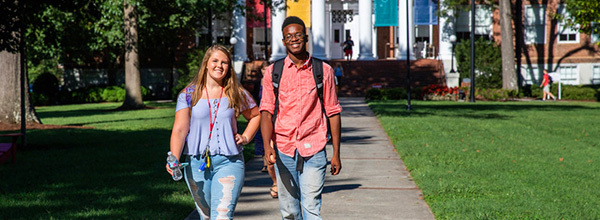Biology Education Degree (BS)
Our degree in biology education is a mix of biology, chemistry, and teaching skills. This program ensures you’re not only understanding the science but also know how to plan classes to teach students of all ages.
First, you’ll dive into the world of biology where you’ll learn about tiny cell processes and big ecosystems. We’ll also show you the basics of chemistry which help tie all the biology pieces together.
You’ll learn statistics, too, so you can understand and work with scientific data. And, we’ll get into organic chemistry, so you can understand how chemical processes happen in living things.
Teaching is a big part of this program, too. You’ll study how students think and learn, how to plan a great curriculum, and how to handle a classroom. Plus, you’ll get to try out what you learn in real classrooms. So, by the end of the program, you’ll be ready to teach your own biology class!
As a Lynchburg biology education major, you’ll:
- Dive deep into the study of living organisms and their environment.
- Learn and understand the chemical processes that occur within these organisms.
- Develop skills to interpret and analyze scientific data.
- Gain knowledge about the psychology of learners and strategies for effective teaching.
- Master the art of curriculum development and classroom management.
- Take part in real-world teaching experiences to apply your learning.
Student Spotlights
Faculty Contacts
Assistant Professor of Music
Chair of the Music Department
Program Chair for Secondary Education
Associate Professor of Biology
Chair of the Biology Department
Interim Managing Director of the Ramsey-Freer Herbarium






